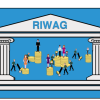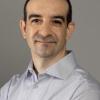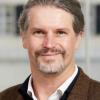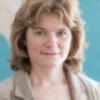
During the last decades inequality has risen not only in respect to income and wealth but also in respect to health and longevity (e.g. Chetty et al., 2016; Case and Deaton, 2017). To understand the recent trends in inequality, it is important to consider that people are most vulnerable during childhood and during old age. This fact has triggered a specific interest in the evolution of inequality over the life course (e.g. National Academies of Sciences, Engineering, and Medicine, 2015; OECD, 2017).
The aim of this project is to provide a unified framework for studying and mitigating the economic and demographic consequences of increasing inequality in European countries. To do so, the RIWAG project pursues several important objectives:
- To construct a rich life-cycle model to trace out how initial heterogeneity is transmitted into unequal behaviours and outcomes over the lifecycle.
- To study how different policies lead to different dynamics over the lifecycle and how this affects intra-generational inequality.
- To integrate the life-cycle model into a general equilibrium framework to study how inequality evolves across cohorts (inter-generational inequality).
- To explore the scope for policy-making in mitigating inequality within and across cohorts.
Publications
Sanchez-Romero, M., Schuster, P., & Fürnkranz-Prskawetz, A. (2023). Redistributive effects of pension reforms: who are the winners and losers? Journal of Pension Economics and Finance 1-27. 10.1017/S147474722300015X.
Sanchez-Romero, M., Marsicano, M., & Kuhn, M. (2024). Explaining the increasing inequality in life expectancy across income groups. IIASA Working Paper. Laxenburg, Austria: WP-24-011
Sanchez-Romero, M. & Fürnkranz-Prskawetz, A. (2023). Social Security Reforms in Heterogeneous Ageing Populations. In: The Routledge Handbook of the Economics of Ageing. pp. 199-216 London: Routledge. 10.4324/9781003150398-13.
Forthcoming articles
Sánchez-Romero, M. & Prskawetz, A. forthcoming. Socio-economic consequences of increased longevity in contemporary populations. In Lemaitre, J-P. and Pavard, S. (eds). Aging and longevity: A Multi-disciplinary Approach. Cambridge University Press, Cambridge.
Work in progress
Kerndler, M., Prskawetz, A., & Sánchez-Romero, M. A life-cycle model of risk-taking on the job.
Presentations
Redistributive effects of pension reforms: Who are the winners and losers?
2024 March: Convention A(ctuaries) Europe (annual online conference)
2023 November: 8th Viennese Vintage Workshop (Laxenburg , Austria)
2023 September: Annual Meeting of the Austrian Economic Association (NOeG) (Salzburg, Austria)
2023 May: University of Göttingen (Göttingen, Germany)
2022 June: European Population Conference 2022 (Groningen, Netherlands)
2022 May: Paris School of Economics (Paris, France)
Wealth for health/A life-cycle model of risk-taking on the job
2023 September: Annual Meeting of the Austrian Economic Association (NOeG) 2023 (Salzburg, Austria)
2022 September: NOeG 2022 (Wien, Austria)
2022 June: NBER Workshop on Ageing and Health (Munich, Germany)
Socio-economic consequences of increased longevity in contemporary populations
2023 February: The 14th Global Meeting of the NTA Network (Paris, France)
The impact of medical progress on the increasing inequality in life expectancy
2023 December: Wittgenstein Centre Conference 2023 "Exploring Population Heterogeneities" (Vienna, Austria)
Title: Reducing Inequality Within and Across Generations
Acronym: RIWAG
Funding Body: OeNB Anniversary Fund
Project No: 18744
Project Leader: Miguel Sanchez Romero
Time Frame: March 2022 - August 2024


